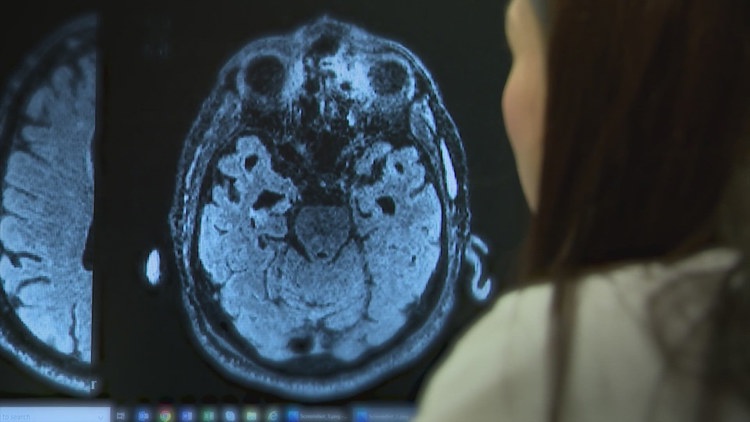Science
Texas Voters Consider $3 Billion Initiative for Dementia Research

A proposed measure in Texas, known as Proposition 14, could significantly enhance dementia research if approved by voters on November 7, 2023. This initiative seeks to allocate $3 billion towards groundbreaking research and development in the state’s laboratories, potentially transforming the approach to tackling dementia and Alzheimer’s disease.
The funding would notably be directed through the Texas Health and Human Services and managed by the University of Texas and other research institutions across the state. By supporting innovative studies and fostering collaboration among scientists, the proposition aims to facilitate advancements in understanding and treating these complex neurological conditions.
Potential Impact on Research and Treatment
If passed, Proposition 14 would enable Texas to join a select group of states that have made substantial investments in dementia research. This funding could lead to the discovery of new treatments, early diagnosis methods, and better care strategies for individuals living with Alzheimer’s and related disorders.
Currently, approximately 6 million Americans are living with Alzheimer’s, with that number expected to rise significantly in the coming years. The urgency of addressing this health crisis is underscored by the projected costs of care, which could exceed $1 trillion annually by 2050. Advocates for Proposition 14 argue that investing in research now could alleviate future healthcare burdens while improving quality of life for countless individuals and families affected by dementia.
Supporters of the measure include prominent figures in the healthcare and scientific communities, emphasizing its potential to drive innovation and create jobs in Texas. The Texas Legislature has endorsed the initiative, acknowledging the need for a comprehensive strategy to combat the growing prevalence of dementia in the state.
Community Support and Challenges Ahead
Grassroots campaigns have emerged to rally support for Proposition 14, highlighting personal stories from families impacted by Alzheimer’s. These narratives have resonated with the public, generating a sense of urgency around the need for enhanced research funding.
Despite the strong advocacy, challenges remain. Opponents of the proposition caution against the long-term financial implications of such a large investment, urging voters to consider the state’s budget priorities. They argue that while dementia research is critical, the funding could detract from other essential services.
As Texas prepares for the upcoming vote, the implications of Proposition 14 extend beyond research funding. This initiative represents a pivotal moment for the state’s healthcare landscape and could position Texas as a leader in dementia research. The outcome will be closely monitored, not only for its immediate effects on research but also for its potential to inspire similar initiatives in other regions grappling with the challenges of aging populations and neurodegenerative diseases.
With the vote approaching, Texans are encouraged to weigh the benefits of this investment against the concerns raised, making an informed choice that could shape the future of dementia care in the state.
-

 Technology5 months ago
Technology5 months agoDiscover the Top 10 Calorie Counting Apps of 2025
-

 Technology2 weeks ago
Technology2 weeks agoOpenAI to Implement Age Verification for ChatGPT by December 2025
-

 Health3 months ago
Health3 months agoBella Hadid Shares Health Update After Treatment for Lyme Disease
-

 Health3 months ago
Health3 months agoAnalysts Project Stronger Growth for Apple’s iPhone 17 Lineup
-

 Health3 months ago
Health3 months agoErin Bates Shares Recovery Update Following Sepsis Complications
-

 Technology5 months ago
Technology5 months agoDiscover How to Reverse Image Search Using ChatGPT Effortlessly
-

 Technology3 months ago
Technology3 months agoElectric Moto Influencer Surronster Arrested in Tijuana
-

 Technology2 months ago
Technology2 months agoDiscover 2025’s Top GPUs for Exceptional 4K Gaming Performance
-

 Technology5 months ago
Technology5 months agoMeta Initiates $60B AI Data Center Expansion, Starting in Ohio
-

 Technology5 months ago
Technology5 months agoRecovering a Suspended TikTok Account: A Step-by-Step Guide
-

 Health5 months ago
Health5 months agoTested: Rab Firewall Mountain Jacket Survives Harsh Conditions
-

 Lifestyle5 months ago
Lifestyle5 months agoBelton Family Reunites After Daughter Survives Hill Country Floods





















